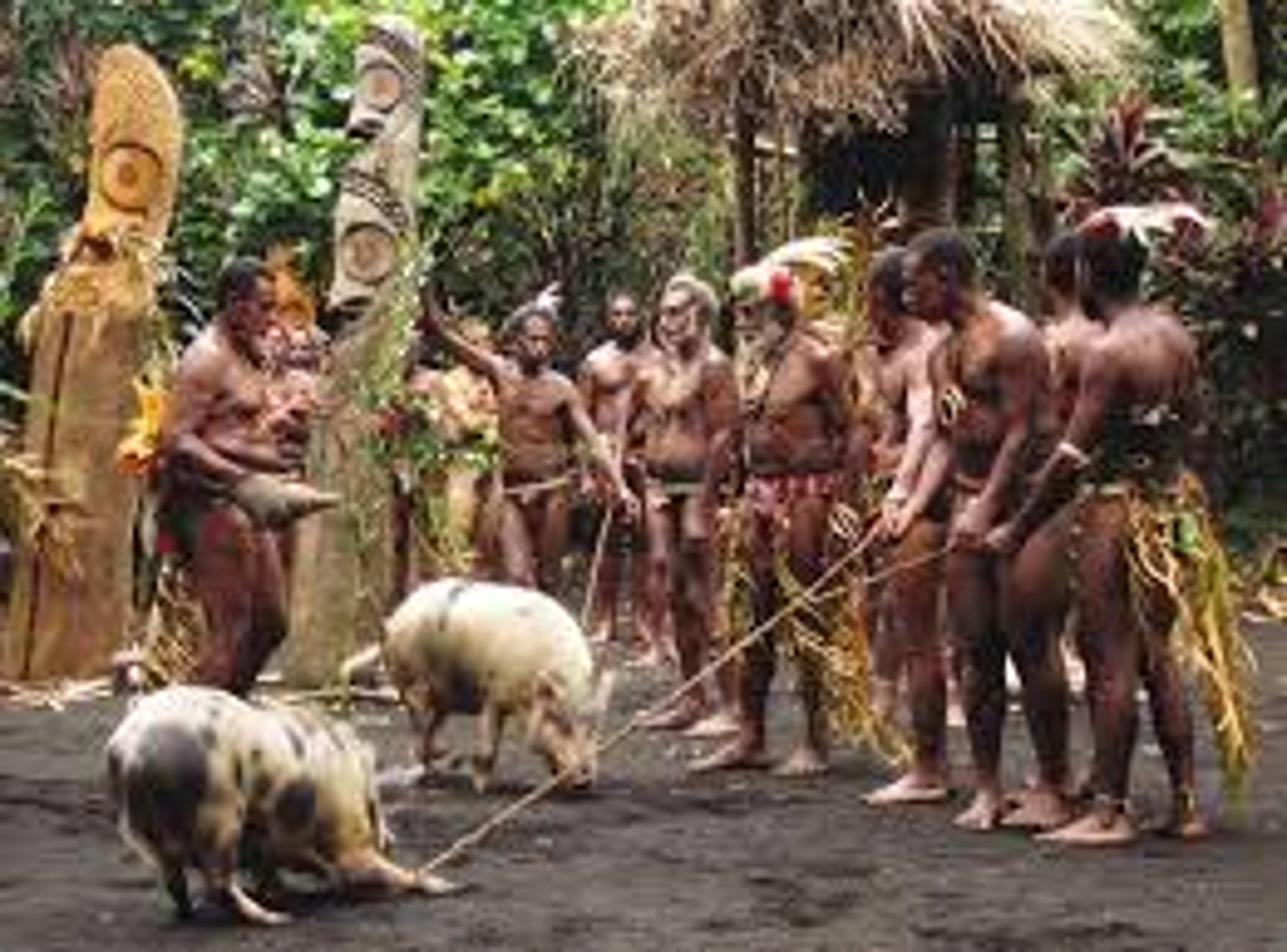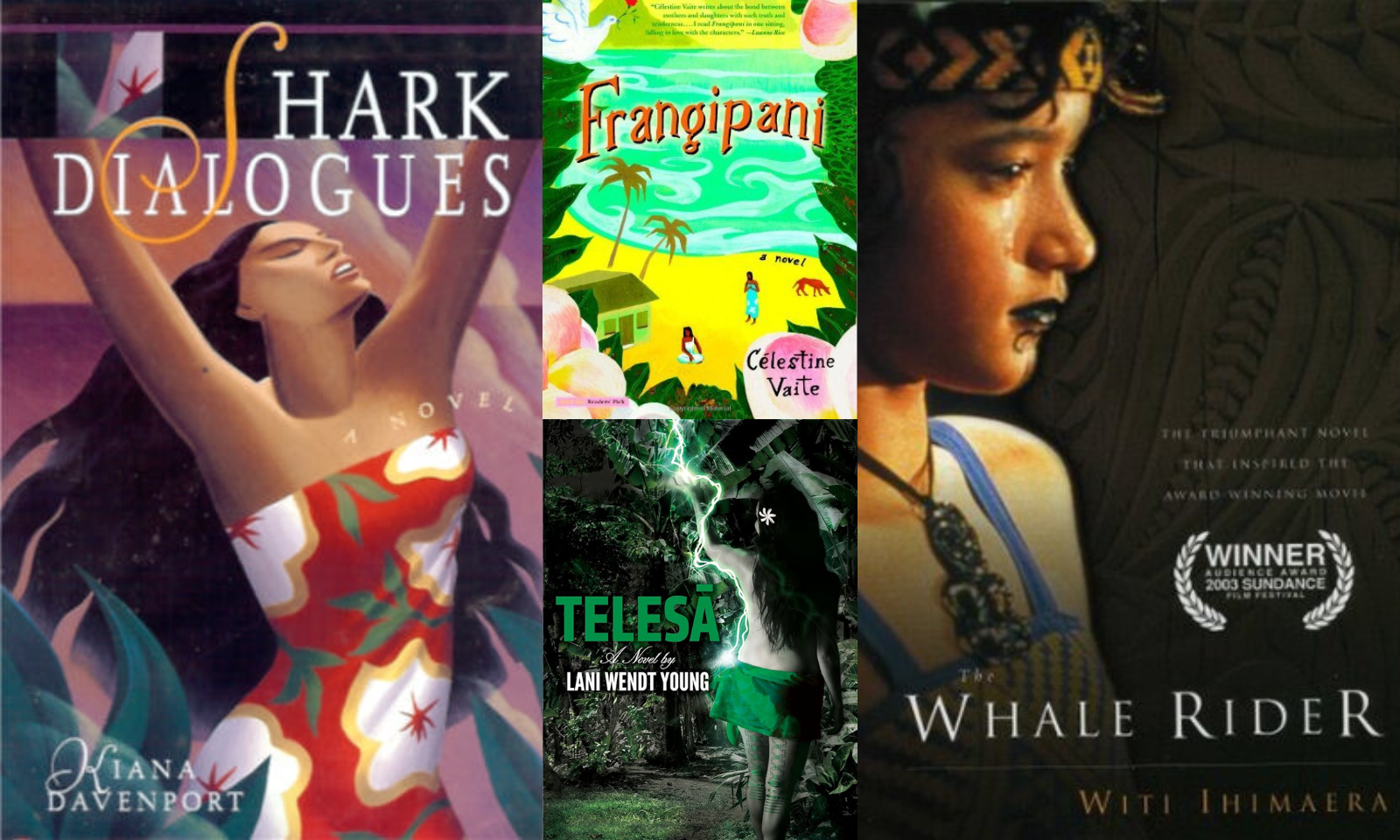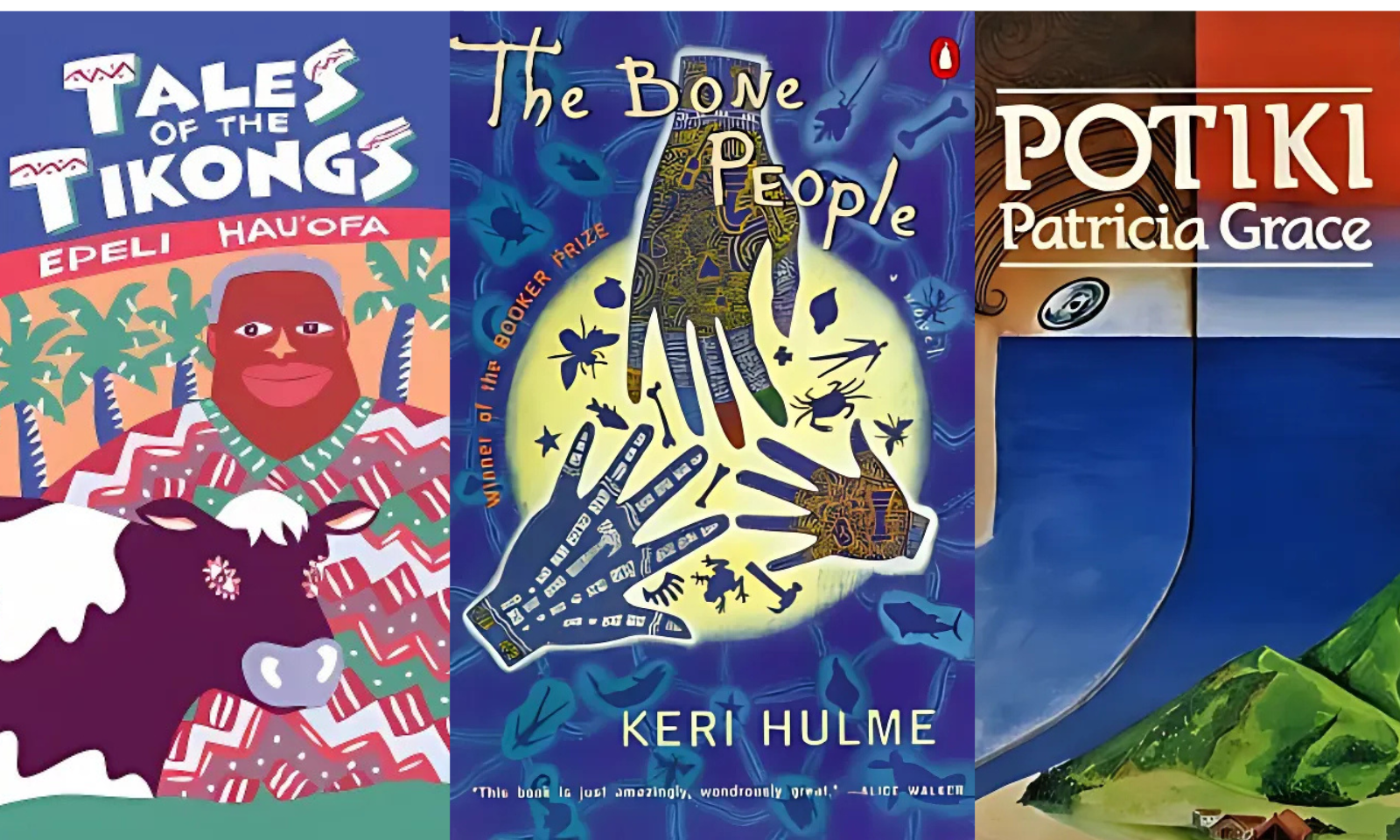

Pacific and Māori authors, clockwise from top left, Emelihter Kihleng, Witi Ihimaera, Célestine Hitiura Vaite, Patricia Grace, Lani Wendt Young.
Photo / Various publishers
Pacific and Māori authors for a summer reading starter list
If you’re new to works by Pacific and Māori writers, what would be a good top 10 to kick off with?


From the friendly isles to Koroneihana: The Tongan hairstylist trusted with a Queen

Ancient DNA shows how Pasifika carried pigs across the ocean


Pacific Warned: Global powers will act if island nations remain weak

From the friendly isles to Koroneihana: The Tongan hairstylist trusted with a Queen

Ancient DNA shows how Pasifika carried pigs across the ocean

Can you say you’ve read at least 10 books by Pacific and Māori authors?
As a Pacific person whose livelihood depends on the written word being valued by readers and listeners, that question wasn’t as straightforward to answer as I’d hoped.
In the end it involved holding out both hands, and trying to finger-count each book from memory.
Sadly, I only just managed to make it into the teens – 14 to be precise. But in today’s media and platform–saturated world, the shift from avid reader to occasional glancer, has been gradual and inevitable.
So, I wondered, if I were to read at least 10 books by Pacific and Māori authors, what should they be?
Luckily, the website Goodreads has a ‘Listopia’ of books by “Pacific Islander authors” that has been scored and ranked.
Take a look at their top 10 (in reverse order) and consider whether there are some literary gems here that could help round out your summer reading.
Having not read most of their top 10, I’ve had to rely on the publisher's blurbs for information on the work.

Books included in Goodreads list of Pacific authors.
10. "Hawaii's Story" by Liliuokalani
This autobiographical work by the last monarch of Hawai’i provides a firsthand account of the events leading to the overthrow of the Hawaiian Kingdom. Queen Lili’uokalani's memoir is said to offer invaluable historical insights and a unique perspective on a crucial period in Hawaiian history.
9. "Potiki" by Patricia Grace
The name Patricia Grace will be familiar as one of New Zealand's most prominent Māori writers for her contributions to Māori literature and cultural representation. Potiki tells the story of a small Māori community's struggle against land development, interweaving Māori spirituality and contemporary social issues. Grace's writing highlights the ongoing challenges faced by indigenous communities while celebrating Māori resilience and cultural strength.
8. "My Urohs" by Emelihter Kihleng
This poetry collection explores Pohnpeian culture, focusing on the significance of the urohs (traditional skirt) in Micronesian identity. Emelihter Kihleng's poetry offers a unique perspective on Micronesian culture, addressing themes of identity, tradition, and modernity. Kihleng is a Pohnpeian poet and scholar, recognised for her contributions to Micronesian literature and cultural studies.
7. "Shark Dialogues" by Kiana Davenport
Kiana Davenport is a Hawaiian author known for her lyrical prose and deep exploration of cultural identity and history. Shark Dialogues weaves together Hawaiian history, mythology, and contemporary issues, spanning two centuries of a family's story. Davenport's work offers a sweeping view of Hawaiian history and culture, blending historical fact with 'magical realism'.
6. "Where We Once Belonged" by Sia Figiel
This coming-of-age story explores the life of a young Sāmoan girl, offering insights into Sāmoan culture and the challenges of modernisation. Figiel's novel provides an insider's view of daily life, addressing themes of growing up and cultural identity. Sia Figiel was the first Pacific Islander to win the Commonwealth Writers' Prize for Best First Book. In 2024 Figiel was charged with the murder of another prominent Sāmoan writer, Caroline Sinavaiana-Gabbard.

Established and celebrated Pacific and Māori authors included in the Goodreads top 10 list.
5. "Telesa: The Covenant Keeper" by Lani Wendt Young
This young adult novel blends Sāmoan mythology with contemporary romance, following a young woman discovering her supernatural heritage. Young's work brings Pacific mythology to life for a new generation, offering representation and adventure in a modern Pacific setting. Lani Wendt Young is a Sāmoan-New Zealand author who has become a prominent voice in Pacific young adult literature.
4. "Tales of the Tikongs" by Epeli Hauʻofa
Epeli Hauʻofa was a Tongan and Fijian writer and anthropologist known for his influential portrayal of Pacific cultures and advocacy for a unified Oceanic identity. This collection of satirical short stories was a revelation when I first read it, it was like uncovering treasure I didn’t know I was searching for. It’s set in the fictional Pacific nation of Tiko, offering humorous and insightful commentary on Pacific life and politics. Hauʻofa's wit and sharp observations provide an entertaining yet thought-provoking look at contemporary Pacific issues.
3. "The Bone People" by Keri Hulme
This complex novel interweaves Māori and European traditions in a story of love, violence, and healing, centered around three damaged individuals forming an unconventional family. Hulme's unique narrative style and deep exploration of cultural identity offer a challenging but rewarding read that has become a classic of New Zealand literature. Hulme, who is of Māori, Scottish, and English descent, won the Booker Prize for this novel in 1985, bringing international attention to New Zealand literature.
2. "Frangipani" by Célestine Hitiura Vaite
Célestine Hitiura Vaite is a Tahitian author who draws on her experiences growing up in Tahiti to create authentic and engaging stories about Polynesian life. This novel offers a warm and humorous portrayal of life in Tahiti, focusing on the relationship between a mother and daughter as they navigate tradition and modernity. Vaite's storytelling provides a genuine and relatable depiction of Tahitian life, blending humour with poignant observations about family and culture.
1. "The Whale Rider" by Witi Ihimaera
You’re probably more familiar with the film. The story blends Māori mythology with contemporary issues, telling the story of a young girl who challenges tradition to fulfill her destiny as a leader. Ihimaera's work offers profound insights into Māori culture and the challenges of modernisation. It's a powerful exploration of gender roles, tradition, and cultural identity that was first published in 1987. Ihimaera was the first Māori writer to publish both a novel and a short story collection. He has been a significant voice in New Zealand literature.